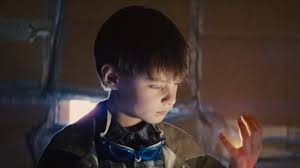JUST LIE BACK AND ENJOY IT: Movie Reviews of Elle, Nocturnal Animals and The Salesman by Howard Casner
Posted: November 25, 2016 | Author: Donald | Filed under: Uncategorized | Tags: Aaron Taylor-Johnson, Amy Adams, Armie Hammer, Asghar Farhadi, Austin Wright, Christian Berkel, David Birke, Death of a Salesman, Elle, Isabel Huppert, Jake Gyllenhaal, Laura Linney, Michael Shannon, Michael Sheen, Nocturnal Animals, Paul Verhoeven, Phillipe Djian, Shahab Hosseini, Taraneh Alidoost, The Salesman, Tom Ford | 4,119 Comments »For questions: hcasner@aol.com
First, a word from our sponsors: I wanted to say thank you to everyone who contributed to our Indiegogo campaign for 15 Conversations in 10 Minutes. We did very well due to you folks. For those who weren’t able to give, keep us in your thoughts. And if you are able to contribute in the future, contact me and I’ll tell you how. I will even honor the perks on the original campaign.
I am now offering a new consultation service: so much emphasis has been given lately to the importance of the opening of your screenplay, I now offer coverage for the first twenty pages at the cost of $20.00. For those who don’t want to have full coverage on their screenplay at this time, but want to know how well their script is working with the opening pages, this is perfect for you. I’ll help you not lose the reader on page one.
Ever wonder what a reader for a contest or agency thinks when he reads your screenplay? FosCheck out my new e-book published on Amazon: Rantings and Ravings of a Screenplay Reader, including my series of essays, What I Learned Reading for Contests This Year, and my film reviews of 2013. Only $2.99. http://ow.ly/xN31r
and check out my Script Consultation Services: http://ow.ly/HPxKE
Warning: SPOILERS
 SPECIAL NOTE: the review of Elle is especially riddled with spoilers, but I don’t know really how else to talk about it.
SPECIAL NOTE: the review of Elle is especially riddled with spoilers, but I don’t know really how else to talk about it.
There has been a lot written of late when it comes to the use of rape as a plot point in movies about women. More and more, for many viewers and critics, the use of such a storyline has turned into a cheap device and exploitive way to get an audience, especially men, to tune in.
It may have even become so polarizing that, to some extent, it has made it difficult to write about a film in which sexual assault is central to the action.
For example, I have seen three movies lately that have employed attacks on women as part of the narrative. Two were explicitly rapes, the other a bit more ambiguous. But in the two that were explicit, I couldn’t tell if the rape felt exploitive because that’s what it was, or that it felt exploitive because the political climate today is such that it doesn’t allow it to be anything but. Read the rest of this entry »
GROWING UP IS HARD TO DO: Movie Reviews of Theeb, The Peanuts Movie and The Night Before by Howard Casner
Posted: December 13, 2015 | Author: Donald | Filed under: Uncategorized | Tags: Anthony Mackie, Bassel Ghandour, Bill Melendez, Bryan Schultz, Cornelius Uliano, Craig Schultz, Jacir Eid Al-Hwietat, Jonathan Levine, Joseph Gordon-Levitt, Kristen Chenoweth, Michael Shannon, Naji Abu Nowar, Noah Schnapp, Seth Rogan, Steve Martino, The Night Before, The Peanuts Movie, Theeb | 1,434 Comments »First, a word from our sponsors: I am now offering a new service: so much emphasis has been given lately to the importance of the opening of your screenplay, I now offer coverage for the first twenty pages at the cost of $20.00. For those who don’t want to have full coverage on their screenplay at this time, but want to know how well their script is working with the opening pages, this is perfect for you. I’ll help you not lose the reader on page one.
Ever wonder what a reader for a contest or agency thinks when he reads your screenplay? Check out my new e-book published on Amazon: Rantings and Ravings of a Screenplay Reader, including my series of essays, What I Learned Reading for Contests This Year, and my film reviews of 2013. Only $2.99. http://ow.ly/xN31r
and check out my Script Consultation Services: http://ow.ly/HPxKE
Warning: SPOILERS
 Theeb is Jordan’s entry in the Foreign Language Film category at this year’s Academy Awards.
Theeb is Jordan’s entry in the Foreign Language Film category at this year’s Academy Awards.
I think that it was stated best by one movie critic I heard on NPR: If you only see one Jordanian film this year, this is definitely the one to see.
Theeb is a first rate coming of age story. It’s what one might term a big little film. The plot in many ways is simple, but the background at times, the vast deserts, the wide vistas, the looming mountains, the huge backdrop of nothingness seen against an endless sky, gives it the feeling of a Lawrence of Arabia, Jr. (and parts of that movie were filmed on location there). Read the rest of this entry »
ART ISN’T EASY: Movie Reviews of Straight Outta Compton and She’s Funny That Way by Howard Casner
Posted: September 1, 2015 | Author: Donald | Filed under: Uncategorized | Tags: Andrea Berloff, Austin Pendleton, Corey Hawkins, Cybil Shepherd, Dr. Dre, Eazy-E, F. Gary Gray, George Morfogen, Ice Cube, Ileana Douglas, Imogen Poots, Jason Mitchell, Jennnifer Anniston, Joanna Lumley, Jonathan Herman, Jr., Kathryn Hahn, Louise Stratton, Michael Shannon, Owen Wilson, O’Shea Jackson, Paul Giamatti, Peter Bogdanovich, R. Marcus Taylor, Rhys Ifans, Richard Lewis, She’s Funny That Way, Straight Outta Compton, Suge Knight, Tatum O’Neal, Tovah Feldshuh, Will Forte | 1,184 Comments »First, a word from our sponsors: I am now offering a new service: so much emphasis has been given lately to the importance of the opening of your screenplay, I now offer coverage for the first twenty pages at the cost of $20.00. For those who don’t want to have full coverage on their screenplay at this time, but want to know how well their script is working with the opening pages, this is perfect for you. I’ll help you not lose the reader on page one.
Ever wonder what a reader for a contest or agency thinks when he reads your screenplay? Check out my new e-book published on Amazon: Rantings and Ravings of a Screenplay Reader, including my series of essays, What I Learned Reading for Contests This Year, and my film reviews of 2013. Only $2.99. http://ow.ly/xN31r
and check out my Script Consultation Services: http://ow.ly/HPxKE
Warning: SPOILERS
 Though bearing almost no resemblance in any other way (to say the least), two movies have opened of late that demonstrate, to paraphrase Stephen Sondheim, that art sure isn’t easy.
Though bearing almost no resemblance in any other way (to say the least), two movies have opened of late that demonstrate, to paraphrase Stephen Sondheim, that art sure isn’t easy.
Straight Outta Compton is a tale told of the rise of three best friends who stop becoming friends and then find their way back to being friends before the credits come up (or as we say in the biz, guys meet guys, guys lose guys, guys get guys). It’s the tale of Eazy-E, Ice Cube and Dr. Dre who took the universe by storm with this newfangled sound called Rap and changed the world of music forever.
The film basically has four types of scenes in it: the first are scenes that show the horrors of growing up in the projects and how blacks are treated by the authorities (even when the authorities are black and in one case, find themselves to be music critics); second are the scenes that show the relationship of the three central characters, especially on tour, including the downtime of hanging out and getting high and laid; third are scenes of confrontation between the artists and their managers; and the fourth are the scenes where they actually perform.
I would say that all but the second set of scenes work well, sometimes astoundingly well, and are strong and rich in dramatic conflict. But the story tends to stall whenever the characters are doing little but hanging around just being themselves (the Beatles from A Hard Day’s Night they ain’t). Most of these scenes have little vibrancy or originality to them, while others resemble and have as much depth and insight as an MTV music video from the same period.
And as riveting as so much of the film is, somewhere in the second half it starts to lose forward momentum and I did sort of wish that they would wrap things up already at times. Read the rest of this entry »
Movie Review of DISCONNECT, ARTHUR NEWMAN and THE ICEMAN by Howard Casner
Posted: May 8, 2013 | Author: Donald | Filed under: Uncategorized | Tags: Alexander Skarsgard, Andrew Stern, Ariel Vromen, Arthur Newman, Becky Johnston, Chris Evans, Colin Firth, Dante Ariola, David Schwimmer, Disconnect, Emily Blunt, Henry Alex Rubin, Hope Davis, Jason Bateman, Michael Nyqvist, Michael Shannon, Morgan Land, Ray Liotta, The Iceman, Winona Ryder | 3,465 Comments »Disconnect, the new techno-thriller from writer Andrew Stern and director Henry Alex Rubin, spends half its time preaching the horrors of modern computer technology and all the evils it can spawn, and then seems to change its mind and spend the other half telling us how that very same technology (and the evil it spawns) can bring estranged people together and save our souls by revealing who we really are. One might think that the filmmakers were going for irony, but I have to be honest and say I think irony was the last thing in play here. For me, the driving force of the film was pandering to the audience with filmmakers taking a typical middlebrow approach to art: confront the audience with something important and even horrendous, but only to the degree that it doesn’t upset them too much and affect the box office.
Disconnect has several through lines in which people are linked in a sort of La Ronde relationship—one person in one story is connected in some way to a person in another. It never comes full circle, so it doesn’t quite fit the structure of Schnitzler’s legendary opus, but it is the cleverest aspect of the film and perhaps the only satisfactory irony to be found: we’re all disconnected due to the internet, yet we end up being even more connected than we thought.
The movie is ambitious and sincere, but never quite has the emotional impact it is aiming for. One reason for this is that for a thriller, Stern and Rubin aren’t able to really generate that many, well, thrills. There’s a lot of conflict, but precious little tension and it seems to take its time going anywhere. There could be several reasons for this. None of the various stories are all that original and their plot lines have few surprises; every turn is signaled well before it happens and the resolutions are rather ho-hum with a touch of LOL along for the ride (they all climax in a set of slow motion, Matrix like intercut sequences that were probably suppose to emphasize the tragedy of it all, but instead only doubled the over the top feeling that was already there).
In addition, each through line has enough going for it to be a whole movie unto itself; but by squeezing each plotline into the length of basically a half hour TV episode, it tended to also squeeze out all the suspense (I couldn’t help but think of what Alfred Hitchcock or Claude Chabrol could have done with just one of the stories). Finally, the whole thing just felt a bit too manipulated, never quite real, with characters that seemed more driven by the plot than the plot being driven by the characters; the result is that the more empathy the filmmakers tried to create for their characters, the less there was.
The acting is solid, but save for a couple of exceptions (Alexander Skarsgard as a victim of identity theft and Michael Nyqvist as someone who may or may not have stolen that identity), no one really rises above the limitations of the screenplay. Hope Davis is wasted in a minor role (and for some reason is given the thankless and perplexing task of not understanding why her husband, played by Jason Bateman, might actually want to find out why his son tried to kill himself). Everyone seems to wear their emotions on their sleeves. Subtle is not a word that might be used to describe the film.
In Sam Shepard’s great play The Curse of the Starving Class, there is a conversation that goes something like this: one character wants to move in order to get away from their present environment, but another character responds by saying, “…but we’ll still be the same people”. I couldn’t help but think of this when I saw Arthur Newman, a film about a man who creates a new identity for himself (yes, Virginia, Arthur’s last name is not the most subtle of choices here).
Colin Firth plays the title character, a Babbit in a grey, flannel suit (well, since he works for Fed Ex, brown khaki pants, but you get my drift). Arthur is a rather boring character, to be both blunt and kind. And when he’s fired from his place of employment, he decides to reboot his life. Unfortunately for him, and the audience, the new Arthur is as boring and uninteresting as his previous incarnation. To make matters worse, Firth uses a bland American accent that’s even more tedious than his personality.
Things pick up a bit when he meets Emily Blunt (as things are wont to do when one meets Emily Blunt), who plays a character who has identity issues of her own, issues compounded by a game she talks Arthur into playing in which they break into people’s homes, wear their victims’ clothes, eat their victims’ food, drink their wine and have sex in their beds.
In the end, screenwriter Becky Johnston and director Dante Ariola show great empathy for their characters, but the movie never really comes together. I suspect that this is because there are so many through lines going on (Arthur wanting to be a golf pro; Blunt’s issues; their sex games; Arthur’s failed relationship with his son), that the filmmakers can’t seem to find a way to weave them all together in a satisfactory whole.
The Iceman, the new crime drama by writers Ariel Vromen (who also directed) and Morgan Land, is a movie where Ray Liotta finally meets someone even more psychopathic than he is and where Winona Ryder, David Schwimmer and Chris Evans try to earn street cred by playing against type (for the record, Evans comes out best). There’s nothing really wrong with the movie. It gets the job done and I was never bored. Michael Shannon does very well in the title role. But in the end, it doesn’t come close to plumbing the existential depths of the television series Dexter and falls into the “if you’ve seen one contract killer movie, you’ve seen them all”.
Tell me what you think.










 You can almost hear the people in the marketing meeting breathe a sigh of relief when it comes to titling the new film, the true story of a couple from different races who got married and were arrested for it.
You can almost hear the people in the marketing meeting breathe a sigh of relief when it comes to titling the new film, the true story of a couple from different races who got married and were arrested for it. Midnight Special, the new neo-noir/sci-fi film, opens at night with a throbbing music score backed by hypnotic drums. It grabs you by your neck and just won’t let go for the next ninety minutes. At first, the story seems to be about the abduction of a little boy, but it soon becomes clear that it’s much more complicated than that. The boy was adopted by the leader of a religious cult that makes its base in a private compound in Texas and the ones who have taken the boy from them is the boy’s biological father and the father’s closest friend.
Midnight Special, the new neo-noir/sci-fi film, opens at night with a throbbing music score backed by hypnotic drums. It grabs you by your neck and just won’t let go for the next ninety minutes. At first, the story seems to be about the abduction of a little boy, but it soon becomes clear that it’s much more complicated than that. The boy was adopted by the leader of a religious cult that makes its base in a private compound in Texas and the ones who have taken the boy from them is the boy’s biological father and the father’s closest friend.
